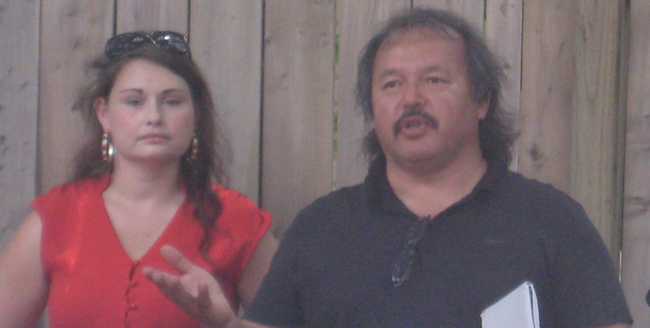Ottawa Drop-In Centre reopens its doors with no government funding

By Suzanne Keeptwo
OTTAWA – Shawenjeagamik , Algonquin for House of Compassion, opened its doors in Ottawa in 2005, made possible through the Homelessness Initiative of the City of Ottawa and the Urban Aboriginal Coalition consisting of The Odawa Native Friendship Centre (ONFC), The Wabano Centre for Aboriginal Health, and Minwaashin Lodge, an Aboriginal women’s support centre.
The Drop-In Centre for First Nations, Inuit and Métis homeless – and at risk of becoming homeless – offered life skills, referral services and crisis intervention until it was forced to close its doors last March. The City of Ottawa administers Ottawa’s share of federal funding intended to prevent and end homelessness but cut funding to Shawenjeagamik to apply more money towards housing.
“I first came here ten years ago” says Padluq Manning, originally from Cape Dorset, Nunuvut who came to Ottawa for dialysis treatments 14 years ago. “It’s a place where I meet other Inuit and speak my language. When it closed, I didn’t go anywhere else because no one understood my culture.” Daniel Toolooktook, also from Nunuvut, states “It’s a great place to hang out when you want to keep sober.” When asked why he tends to drink he is quick to respond with “to forget”.
In spite of the closure, Shawenjeagamik reopened on July 2. “It is not due to government funding that we are able to reopen today. We made it happen thanks to the general public, fundraising, individual and corporate donations and the Right Relations Group” announces Morgan Hare (MChigeeng First Nation), executive director of the ONFC. “This is what we prayed for” says Gabrielle Fayant, (Fishing Lake Métis Settlement, AB) VP of the Friendship Centre.
Largely due to the social issues the Truth & Reconciliation Commission brought to the attention of the general public, the Rights Relation Group (RRG) of the First United Church of Ottawa is committed to actively restore relationships with indigenous peoples. “This centre is a dining room, a living room and a home away from home” says RRG’s Joyce Hartman who coordinates the volunteer group which now provides food and meal service at Shawenjeagamik. “Thirty groups came together: churches, mosques, synagogues, book clubs and more. We just want to keep caring for each other” she said.
IRS survivor and cultural counsellor, Tom Louttit (Moose Cree First Nation) admits he was once on the street “The Residential School did not teach us about love. It was an elder who taught me about our traditional teachings”. Tom describes himself as an Oskabay-wis, “a helper to the people“and has provided Elder services in the area for over 25 years.
Joseph Wheesk (Attiwapiskat First Nation) enjoys the fact that “all nations come together here to help each other and balance our negative behaviour. There’s lots of support here.” But, then adds “It’s a lot easier in the city to drink. Alcohol is a disease and I lost all of my four directions.” He was raised Roman Catholic but now adheres to traditional spiritual teachings and could become a counsellor himself one day.
Suzanne Keeptwo is a freelance writer residing in unsurrendered Algonquin territory.

